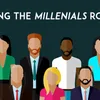The inter-generational workforce: CII Global Summit shares insights on knowledge-sharing behaviours and collaboration
In this preview article on CII’s upcoming annual summit, we share insights on how attitudes towards technology, media and communication change across generations – and also what remains largely the same.
Trends in technology, management practices, and collaborative ecosystems will be discussed next week at the CII Global Knowledge Virtual Summit 2020: Knowledge in the Age of Artificial Intelligence. The event is being held entirely online, across three afternoons on July 6-8.

As media partner, see Part I and Part II of YourStory’s 2019 summit articles for insights on knowledge communities, digital transformation, and business impacts from around the world. The conference is also supported by the Knowledge Management Global Network (KMGN), an alliance of KM professional societies.
Knowledge sharing, collaboration, and resilience are acquiring even more importance in the wake of the COVID-19 pandemic. In this sixth preview article on the summit, YourStory presents insights from the speakers and organisers, as well as experts from KMGN. See also our earlier articles on Knowledge Leadership, KM in the Age of AI, Gamification, Knowledge Sharing in the COVID-19 Era, and Eye on AI.
From technology to media consumption and creation
“GenNext depends on the use of technology and collaborates using all manner of technologies,” observes Refiloe Mabaso, Deputy Chairperson of Knowledge Management South Africa (KMSA), in a chat with YourStory. Online collaboration, which has only accelerated due to the COVID-19 crisis, bodes well for GenNext as digital platforms have become the foundation of communication and knowledge sharing.
Moria Levy, CEO, ROM Knowledgeware, points to several changes in the habits of the new digital generation. “They have better technological orientation. They have habits of easier and shorter writing. They engage less in linear reading, and prefer to float over texts,” she observes.
“The new generation is also more visual. They have ingrained searching habits,” she adds. They are also more adept to share knowledge. “KM methodologies will have to adapt to the new knowledge worker by offering new methods of documentation and visualisation. Sharing and search will be richer than what we were used to,” Moria predicts.
“GenNext is poised to position KM in another orbit of success by increased modes and means of collaboration with technological intervention,” observes Hariprasad Reddy, General Manager for Quality, Knowledge Management and Analytics at Wipro.
“GenNext is more than willing to share information, as they have grown up with mobiles or tablets and with information at their fingertips,” he adds. They look for and facilitate one-click sharing of knowledge in a simple and easy way.
“They do not need templates or guidelines. They also prefer video-based knowledge capsules of quick three-to five-minute snippets,” he observes. Knowledge management should be like the PubG game where the whole organisation is engaged, Hariprasad jokes.

Knowledge access: from scarcity to abundance
“Millennials are digital natives while the prior generations are all digital immigrants. This reflects in their knowledge sharing behaviours too,” observes Ved Prakash, Chief Knowledge Officer of Trianz.
Millennials have grown up in an abundance of freely-available knowledge and are naturally inclined towards collaborative working with unhindered sharing of knowledge. “In contrast, the previous generations hold on to the belief of knowledge is power,” Ved adds.
“GenNext is more experimental in their behaviour and are adept at applying new technology for discovering new use cases,” he explains. This bodes well for KM of the future, where technology is expected to play an increasingly significant role. Fortunately, in many multi-generational organisations, the barriers of knowledge sharing are coming down.
The context and use of knowledge
Rudolph D'souza, Chair of KMGN and Chief Knowledge Officer of AFCONS Infrastructure, explains that some organisations today have three or even four generations working together: Baby Boomers, Gen X, Gen Y, Gen Z, millennials, and the ‘snowflakes.’
“Some are digital natives and believe that knowledge should be delivered at the fingertips. This is in conflict with the earlier generations who believe knowledge is gained by cultivation and not referencing,” Rudolph explains.
So if this is not seen in context, it may appear that there is conflict and that millennials perceive earlier generations as “hoarders,” he cautions. “The root cause is that earlier generations want to share knowledge in depth. They are afraid that knowledge used out of context can be disastrous,” Rudolph adds.

Knowledge leadership
“GenNext should be inducted early in positions of influence within the core KM teams. They understand technology and its interconnectedness, and how it can be leveraged much better. They need to be given ‘bounded’ freedom,” Rudolph urges.
“It is going to be crucial to have a multi-generational team involved in leading KM for the future,” advises Balaji Iyer, Director of Knowledge Management and Enterprise Transformation at Grant Thornton.
He observes that while earlier management attitudes were focussed on ‘share only what needs to be shared,’ the current behaviour is towards ‘share everything except that which needs to be kept confidential’. So the trend is definitely shifting towards sharing more than less, according to Balaji.
“While the sensibilities are evolving towards an open world, the constraining forces like regulations, privacy, and security also need to be factored in,” he cautions. KM needs to be effective for those who work for the business and help them navigate complex and competing priorities.
“Today’s youth are tomorrow’s leaders, and are capable of working at hyper speed. Some critics may say that youth of today have no sense of belonging to stay in a job for long, and are easily distracted. My opinion is that they are working at super-fast speeds in terms of priorities and decisions,” says Rajesh Dhillon, President, Knowledge Management Society (KMS), Singapore.
“It’s not about changing them to be like us or us not keeping up with them. It is about building trust and understanding between all,” he advises. Over and above the generational shift in knowledge behaviours, the pandemic has accelerated the need for online knowledge-sharing, he adds.
The knowledge edge
“The digital natives, with their penchant to share every little detail on social media, are the best suited to ensure the kind of re-skilling of workforces needed in the digital world,” explains Manoj Hariharan, Chief Knowledge Officer at Bosch Engineering and Business Solutions.
“In fact, with the introduction of Microsoft Teams in Bosch, many youngsters have become early adopters. They came together and formed Developer Corner teams with several channels like Smart Coffee Break, Today I Learned, Continuous Everything, and more,” he observes.
This helps share knowledge across company and country boundaries. “The Developer Corner initiative identified key technical and cultural issues, which needed to be addressed to ensure Bosch’s attractiveness as a software company. The leadership not only listens to these issues but is also actively shaping the necessary changes,” Manoj emphasises.
Reverse-mentoring
“There are going to be multiple generations of knowledge workers with different conditioning they apply to work contexts,” explains Ravi Shankar Ivaturi, Business Operations Senior Director, Products and Platforms, Unisys.
“KM, and management in general, will have to make the teaming of several generations adapt to an organsational culture for increased productivity and customer satisfaction. We are still under-utilising the potential of GenNext and how they can reverse-mentor the earlier generations of knowledge workers,” he cautions.
Gamification
Another popular management practice to increase employee engagement and motivation is gamification, or the use of gaming elements and mechanics.
“Adoption rates of gamification by GenNext will definitely be higher than by others,” explains Deepak Ramasamy, Country Head for Voice, Virtual and Social Media at Standard Chartered Bank (UAE, West Africa).
But this is not to say that game elements do not work for other generations. “Almost 40 percent of Candy Crush users are above the age of 35,” he jokes. Ultimately, gamification can work for all if you know what, whom and how you are solving. “No one says no to the game,” he adds.
The road ahead
Digital fluency need not be the preserve solely of the next generation. “I don't think it is generation specific, it is more mindset specific,” explains Vincent Ribière, Managing Director and Co-founder of the Institute for Knowledge and Innovation Southeast Asia (IKI-SEA), hosted by Bangkok University
“Gen Next will for sure be much more agile and open to changes. This will help KM evolve with organisational continuous changes,” he signs off.
Irrespective of the generation of knowledge workers, the cultivation of trust is key for effective knowledge sharing, according to Arthur Shelley, Founder of Intelligent Answers. “With increasing information overload and highly mobile careers, the relationships between people seem shallower and shorter, or even more intermittent now than in the past,” he cautions.
“The best knowledge sharing happens when people are engaged in trusted partnerships like mentoring, apprenticeship, startup teams, social learning ecosystems, communities of practice, and the like,” Arthur explains.
“The immediacy and unpredictability of the modern VUCA world is a barrier to forming these deeper relationships, which in turn can diminish the flow of relevant and valuable information,” he cautions. Social media increases the overall flow of information between people, but this can be a distraction as well.
Arthur advises having a strong focus on purpose and priorities to ensure meaningful interactions in the inter-generational workforce. “Prioritising our interactions to those of most mutual and social benefit will enhance our individual and collective life experiences. We become what we consume,” he signs off.
Edited by Megha Reddy









